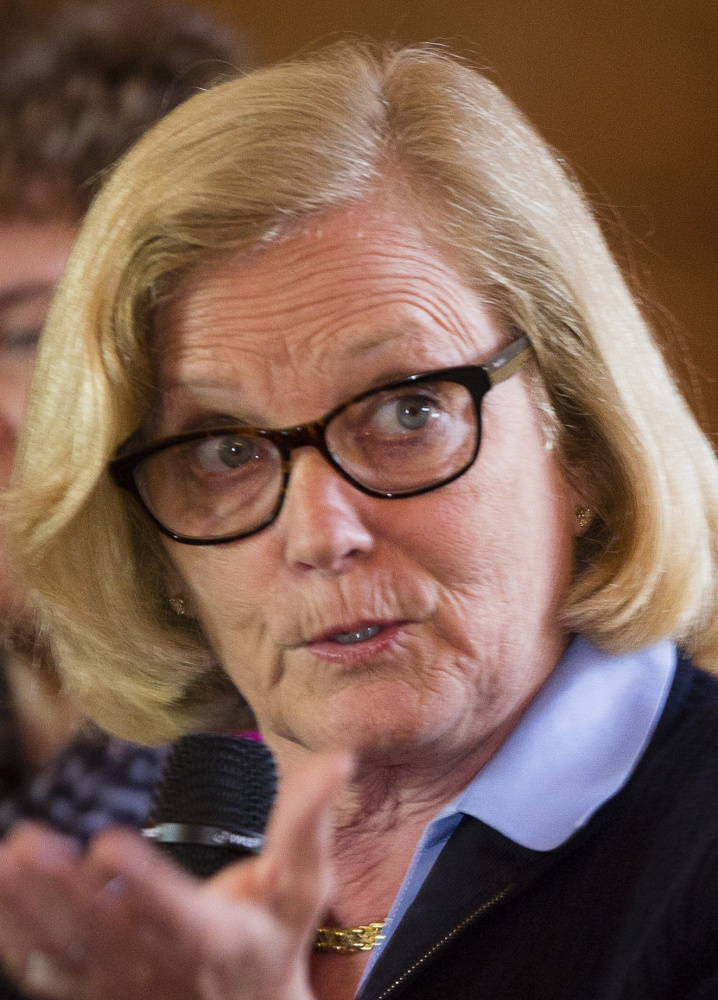With an eye to the future, U.S. Rep. Chellie Pingree is joining a group of American organic food producers and advocates, including the CEO of the Organic Trade Association, on a trip to Cuba.
Scheduled for May 2-7, the trip is being sponsored by the Center for Democracy in the Americas, which favors normalizing relations with Cuba. Pingree said part of the mission is to establish connections between Cubans who have been successfully producing essentially organic food for the last 25 years and companies involved in the American organic movement. Among the Americans headed to Havana will be Seth Goldman, co-founder of Honest Tea, the Maryland-based organic bottled tea company, as well as Dave Alexander from Global Organics, which deals in organic cane sugar, chocolate and fruit concentrates.
“We’re interested in getting a foot in the door,” Pingree said Wednesday. “And making sure that they know there are opportunities there.”
The group will spend five days on the island, meeting with Cuba’s agriculture minister, touring farms and restaurants, and talking about opportunities for both imports and exports between Cuba and North America, including Maine. Pingree noted that in the past, Maine exported potatoes to Cuba.
Pingree, an organic farmer herself, first visited Cuba in 2003 with a delegation traveling under the educational umbrella of the University of Southern Maine. The aim then was to encourage economic development. “Things didn’t change as quickly as we hoped,” Pingree said, but the trip excited her curiosity. The farm-to-table culture in Cuba – including a thriving underground restaurant scene catering to tourists – is of particular intrigue, as are the urban farming operations. “They had to do a lot with very little.”
“I think that is one of the reasons the chefs are so interested in it,” she said. Celebrity chef Tom Colicchio of Craft and Colicchio & Sons in New York – and a friend of Pingree’s – also will be on the trip.
“We’re not going in with a plan in place or thinking we know everything,” she added. “This is a country that has been very hard to access information from for a very long time. It is kind of like a hidden gem.”
In a sense, Cuba also is a pristine, or close to it, agricultural gem. When the Soviet Union crumbled, Cuba no longer had ready access to fertilizers and pesticides for its state-run farms, many of which grew sugar cane for export, and began producing, often on small-scale farms, food with little or no chemical inputs. Essentially, it became organic out of necessity, as a result of global politics and its island geography.
On a Cuban visit last November, U.S. Department of Agriculture Secretary Tom Vilsack touted the idea of Cuban exports to the U.S. if and when the embargo is lifted (which can’t happen without Congressional approval). After that trip, he told Modern Farmer magazine “I think they just have an unlimited opportunity” in terms of supplying the U.S. with organic vegetables.
But Laura Batcha, the chief executive officer of the Organic Trade Association, who is also going on the trip with Pingree, cautioned that none of that could happen overnight, saying low input or no input farming is not technically organic.
“There are processes that obviously overlap, but it isn’t the same thing,” she said. Cuba would have to establish infrastructure for organic certification. But with its proximity to the United States, where the demand for organic foods isn’t currently being met by supply, the door opening between the two countries represents opportunities. And choices. Among them could be one that would likely leave organic proponents crestfallen; Cuban farmers shifting from their old-fashioned agriculture of necessity to something more typical of American farming, such as using pesticides or chemical inputs to say, increase production.
For Batcha, the May trip is about establishing relationships and starting conversations.
“First you break bread,” she said.
Send questions/comments to the editors.



